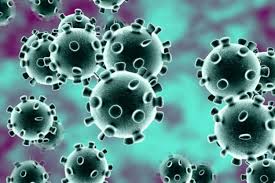Like all flagship events on the continent this year, Africa Liberation Day celebrated every May 25th has been heavily overshadowed by the raging coronavirus pandemic.
The continent’s umbrella organisation, the African Union marked the day casting a weary eye on the state of the pandemic on Africans and what to do about it to stop it overwhelming mostly decrepit health systems.
It decried the seemingly eternal struggle catering for the welfare of populations despite Africa’s otherwise huge economic potential and rich, young and dynamic human resource base to bring this to fruition.
But there is a more immediate threat to tackle in Africa as Afro-pessimists about its ability to deal with health challenges of a colossal nature peddle doom and gloom.
In the words of the AU Commission chairman Moussa Faki Mahamat, the continent to the chagrin of the rest of the world coped well with the Covid-19 crisis, even exceeding expectation.
In his opinion the rest of humanity had written off the continent as a place where a health disaster of biblical proportion was waiting to happen as the disease ravaged stronger and wealthier parts of the world, bringing otherwise powerful economies down to their knees.
He said a continental response strategy has since been developed and promptly implemented to deal with the global pandemic which has killed over 340, 000 people worldwide.
Africa’s first case of coronavirus was registered in Egypt on 14 February.
Since then all 54 countries have recorded cases, with the last being Lesotho.
South African president Cyril Ramaphosa in his role as the current AU chair said the worldwide expectation was that Africa would be the hardest hit in terms of recorded cases and deaths, given its vulnerability to most disasters, evoking the helplessness which attended to the Ebola epidemic six years ago.
But this has not proven to be the case, leaving the world’s leading scientists questioning how this was managed in Africa.
There are over 100,000 cases and 3,354 deaths on the continent, with South Africa being the most affected with 22,583 cases and over 400 deaths.
Like Ramaphosa said, it is the general feeling among Africans that as countries around the world battle to turn the tide against the pandemic, Africa has taken firm control of its destiny by developing a clear strategy and raising financial resources from member states.
And although largely snubbed or jeered by the international media, African countries like the island nation of Madagascar and Lesotho have announced medicinal remedies against the virus.
Madagascar’s Covid-Organics antidote has not only received positive rave reviews in Africa but also seen orders being placed for it by many countries on the continent, from Ghana, Senegal, to South Africa and Guinea-Bissau.
In the words of one observer, solidarity does not come better than that.
An Africa Day Solidarity Concert was held to raise funds for the Covid-19 campaign on the continent with class acts such as the Nigerian artiste Davido taking part.
With a Stronger Together banner as the rallying cry, the AU aimed to deepen solidarity among Africans to support the continent’s fight against Covid-19 through music and to raise funds for its response fund and help the Africa Centre for Disease Control.
And more and more Africans like Kosgey Kimallah are buying into the whole solidarity mantra.
“Now I hope AU have realized that we need to depend on ourselves it’s over with the East and West, it’s us the Africans to put up working policies and live up to it, we have everything here in Africa than anywhere else outside Africa” Kimallah wrote.
With the fight against the coronavirus requiring unity in adversity, it was a day to evoke the spirit of African unity’s late founding fathers like Kwame Nkrumah, David Dacko, Haile Selassie, and Julius Nyerere in a bid to present a united front against a new common enemy, Covid-19.
The AU believes the words from these colossi of African history offer inspiration for the challenges of this day and age.
Kwame Nkrumah of Ghana: ” …just as we understood that the shaping of our national destinies required of each of us our political independence and bent all our strength to this attainment, so we must recognise that our economic independence resides in our African union and requires the same concentration upon the political achievement.”
David Dacko of the Central African Republic: “We are therefore left with only one method of bringing about African unity. That method is the method of free agreement. ….our task is to discover how to bring about our freedom in unity and our unity in freedom. This means that at any given point we must discover our highest common denominator. Having discovered that highest common denominator our duty is to take it without waiting till tomorrow”.
Haile Selassie, Ethiopian Emperor: “……If we permit ourselves to be tempted by narrow self –interest and vain ambition, if we barter our beliefs for short-term advantage, who will listen when we claim to speak for conscience, and who will contend that our words deserve to be heeded? We must speak out on major world issues, courageously, openly and honestly, and in blunt terms of right and wrong. If we yield to blandishments or threats, if we compromise when no honorable compromise is possible, our influence is weakened”.
WN/as/APA


